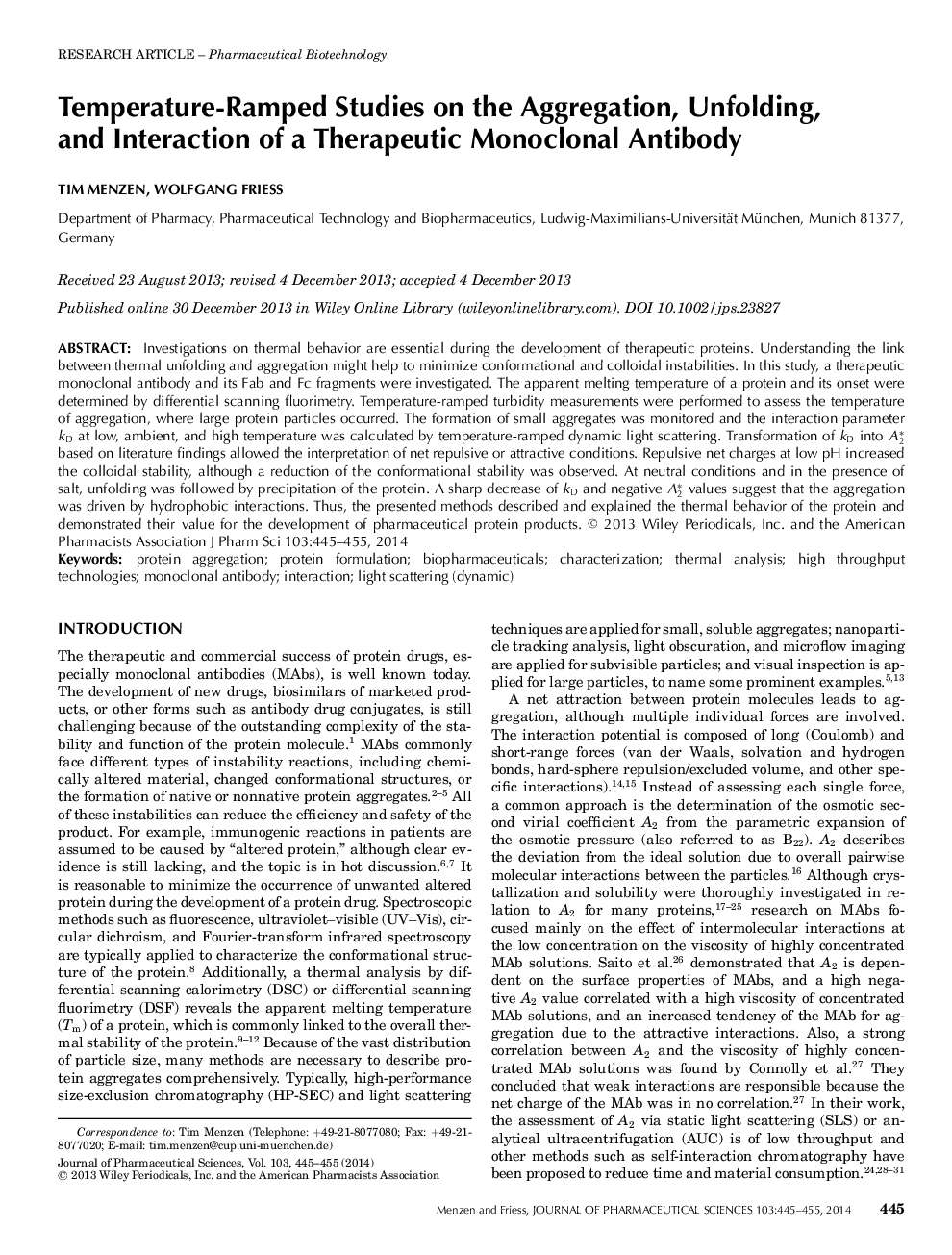| Article ID | Journal | Published Year | Pages | File Type |
|---|---|---|---|---|
| 10162591 | Journal of Pharmaceutical Sciences | 2014 | 11 Pages |
Abstract
Investigations on thermal behavior are essential during the development of therapeutic proteins. Understanding the link between thermal unfolding and aggregation might help to minimize conformational and colloidal instabilities. In this study, a therapeutic monoclonal antibody and its Fab and Fc fragments were investigated. The apparent melting temperature of a protein and its onset were determined by differential scanning fluorimetry. Temperature-ramped turbidity measurements were performed to assess the temperature of aggregation, where large protein particles occurred. The formation of small aggregates was monitored and the interaction parameter kD at low, ambient, and high temperature was calculated by temperature-ramped dynamic light scattering. Transformation of kD into A*2 based on literature findings allowed the interpretation of net repulsive or attractive conditions. Repulsive net charges at low pH increased the colloidal stability, although a reduction of the conformational stability was observed. At neutral conditions and in the presence of salt, unfolding was followed by precipitation of the protein. A sharp decrease of kD and negative A*2 values suggest that the aggregation was driven by hydrophobic interactions. Thus, the presented methods described and explained the thermal behavior of the protein and demonstrated their value for the development of pharmaceutical protein products.
Keywords
Related Topics
Health Sciences
Pharmacology, Toxicology and Pharmaceutical Science
Drug Discovery
Authors
Tim Menzen, Wolfgang Friess,
